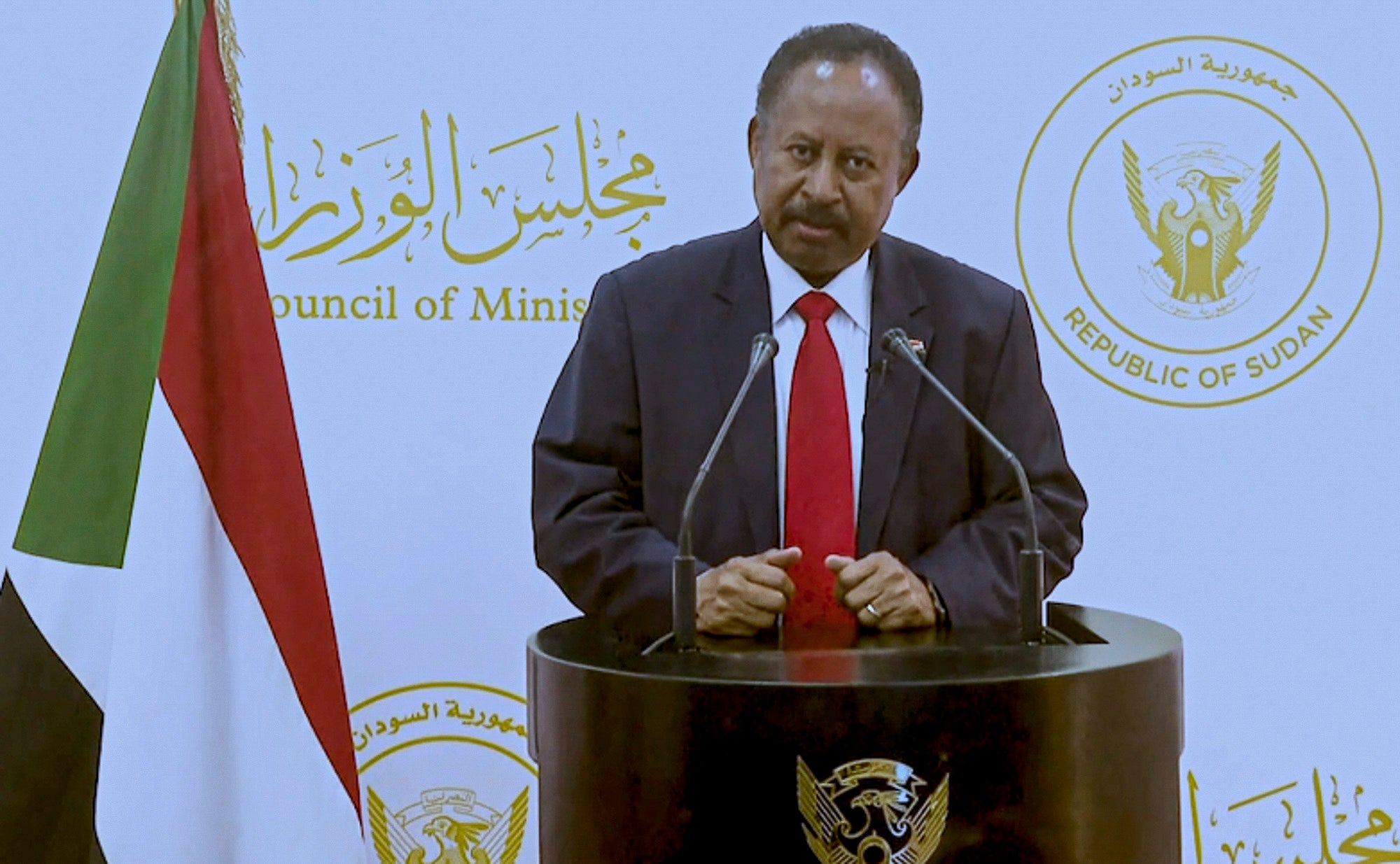The Latest: Sudan says countries must cooperate on vaccines
The prime minister of Sudan’s transitional government is urging world leaders to work together to get developing countries more COVID-19 vaccines

Your support helps us to tell the story
From reproductive rights to climate change to Big Tech, The Independent is on the ground when the story is developing. Whether it's investigating the financials of Elon Musk's pro-Trump PAC or producing our latest documentary, 'The A Word', which shines a light on the American women fighting for reproductive rights, we know how important it is to parse out the facts from the messaging.
At such a critical moment in US history, we need reporters on the ground. Your donation allows us to keep sending journalists to speak to both sides of the story.
The Independent is trusted by Americans across the entire political spectrum. And unlike many other quality news outlets, we choose not to lock Americans out of our reporting and analysis with paywalls. We believe quality journalism should be available to everyone, paid for by those who can afford it.
Your support makes all the difference.The Latest on the UN General Assembly:
___
UNITED NATIONS — The prime minister of Sudan’s transitional government urged world leaders on Saturday to work together to get developing countries more COVID-19 vaccines.
In a speech to the United Nation’s General Assembly, Prime Minister Abdalla Hamdok echoed similar statements from other speakers when he said that making sure countries like Sudan get enough shots is the only way to ensure the safety of the rest of the world.
Sudan has only received a fraction of the vaccines it needs, according to official figures. Since March, the Sudanese government has vaccinated approximately 830,000 people out of 45 million. So far, Sudan has recorded more than 37,500 cases and 2800 deaths from the coronavirus. The true numbers are believed to be far higher given the scarcity of testing.
Hamdok, a respected former official with the U.N. Economic Commission for Africa, also said his country had achieved much in its transition to democratic rule over the past two years. However, he avoided any mention of a reported coup attempt that was stifled by military leaders. Sudanese authorities reported Tuesday that a group of soldiers tried to take power, but said the attempt failed and the country’s ruling council and military remain in control.
The development underscored the fragility of Sudan’s path to democracy, more than two years after the military’s overthrow of longtime autocrat Omar al-Bashir amid a public uprising against his three-decade rule.
Hamdok also spoke out about his concerns over Ethiopia’s massive Renaissance Dam, built on one of the Nile River’s main tributaries, and urged Ethiopia and other downstream countries to come to a lasting agreement. He said that his country had already experienced adverse effects of the dam’s partial filling, completed in phases this and last summer.